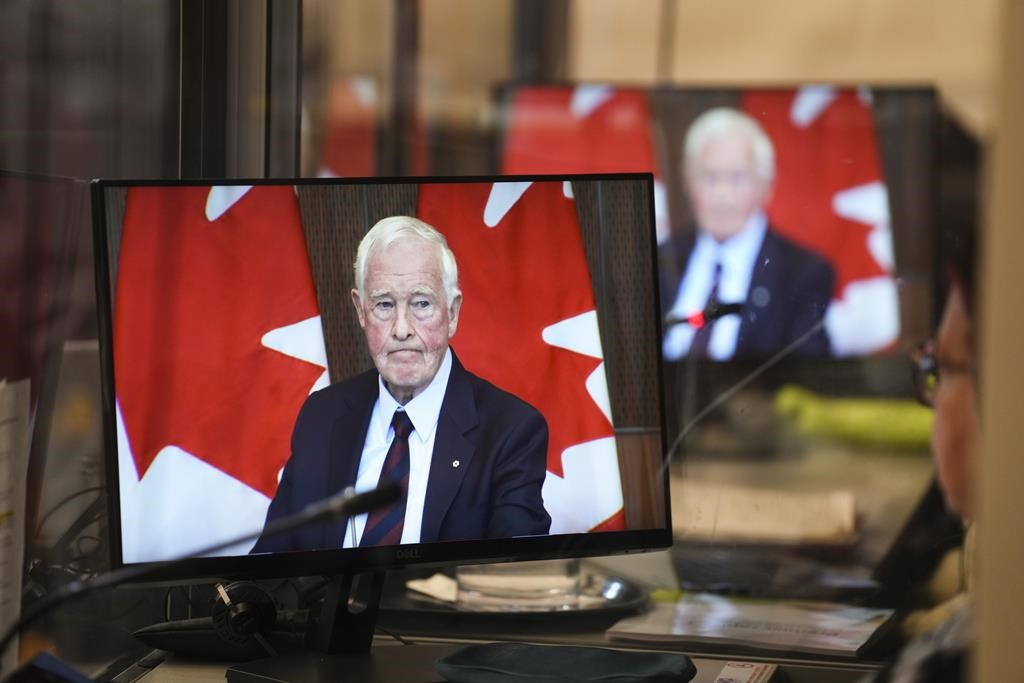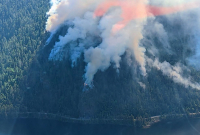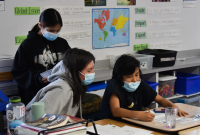Dissecting the foreign interference soap opera

Over the last few months, Canadians have seen a steady drip of media reports about China’s possible influence over the 2019 and 2021 federal elections. Chinese officials have denied any interference, calling the allegations “baseless and defamatory.”
The accusations have prompted calls for a public inquiry. But instead in March, Prime Minister Justin Trudeau appointed former governor general David Johnston to review the findings of two closed-door panels that Ottawa set up to investigate Beijing's suspected interference activities.
Johnston’s report was released last month. It concluded that Chinese interference did not alter the outcomes of the 2019 and 2021 general elections. Rather than settle the issue, the results sparked more controversy. Opposition leaders alleged Johnston’s bias towards the prime minister, and calls for a public inquiry rang louder.
Then in a shocking turn of events, Johnston resigned on Friday.
On Episode 15 of Hot Politics, David McKie talks with security and intelligence reporter Jim Bronskill and former senior national security official Artur Wilczynski to sort out what’s next in this saga.
Bronskill explains that Dominic LeBlanc, the intergovernmental affairs minister, has asked the opposition parties to provide a plan forward to avoid another appearance of partisanship.
“But I think the government is setting the cat among the pigeons to some extent. As we know, these opposition parties rarely agree on anything,” he said.
Wilczynski called the treatment of the former governor general “political vandalism” but agreed a public inquiry is the way forward in order to restore public trust in Canada’s electoral system.
“After the number of months of the process that we've had, I think that public trust in our democratic institutions has further eroded at our own hands. It's Canadians that have done damage to that trust more so than some of the foreign actors that we want to examine,” he said.

Listen to Unravelling the Canada-China Interference Saga for a full analysis of how Canadians can expect the government to move this matter forward and the impact all this has on our democracy.
Hot Politics is made possible by listeners like you. If you’ve supported the podcast already, thank you. If you haven’t, click here to donate what you can to help us keep producing valuable journalism.
Got questions or comments? Email us at producer@nationalobserver.com.
You can also follow us on Twitter @NatObserver.






Comments
"It's Canadians that have done damage to that trust more so than some of the foreign actors that we want to examine,” he said."
Sorry, Dude. Not.
The problem has been since the beginning that the PM chose a personal friend to do the work. Somehow or other, the Hill needs a dictionary, with conflict of interest spelled out, and at some point, our estimable Leader needs to understand that the country's citizens are fed up with his shenanigans.
Unfortunately, I've no idea how he can ever get the message, given that there's no alternative to vote for, unless/until we get proportional representation.
Exactly the line I was going to focus on, except I was going to point out how it's yet another example of the media using "bothsidesism" again because it's NOT just generic "Canadians" or "politicians" depleting our trust by attacking all our institutions and democracy itself, it's very specifically the Convoy Party of Canada led by one of Presto Manning/Stephen Harper's avid boys in short pants braying constantly about the incompetence of the government, as if conservatives haven't given new meaning to the concept of a "shallow talent pool." Not to mention the word "base." And don't forget that this playbook aims for the judiciary, and its repercussions are playing out in the U.S. as we speak.
Clearly this subterfuge is working like a charm because here's a comment repeating the conservative narrative about Trudeau appointing one of his "friends" rather than an esteemed professor of constitutional law, esteemed enough as a trustworthy public servant in the before times to be appointed governor general, and by Harper no less.
But the vilification of Trudeau is now so entrenched that even Godfather Harper's approval is automatically nullified along with these considerable credentials because after all, he knew Justin Trudeau. AND the antichrist, Pierre Trudeau.
Never mind that these people simply move in the same circles so that naturally happens; they're evil "elites" up to no good, so that swamp needs to be drained. Right.
Horrifying how easily and completely perspective evaporates.